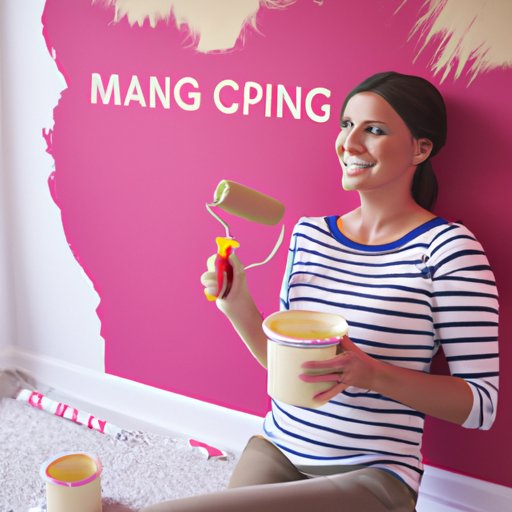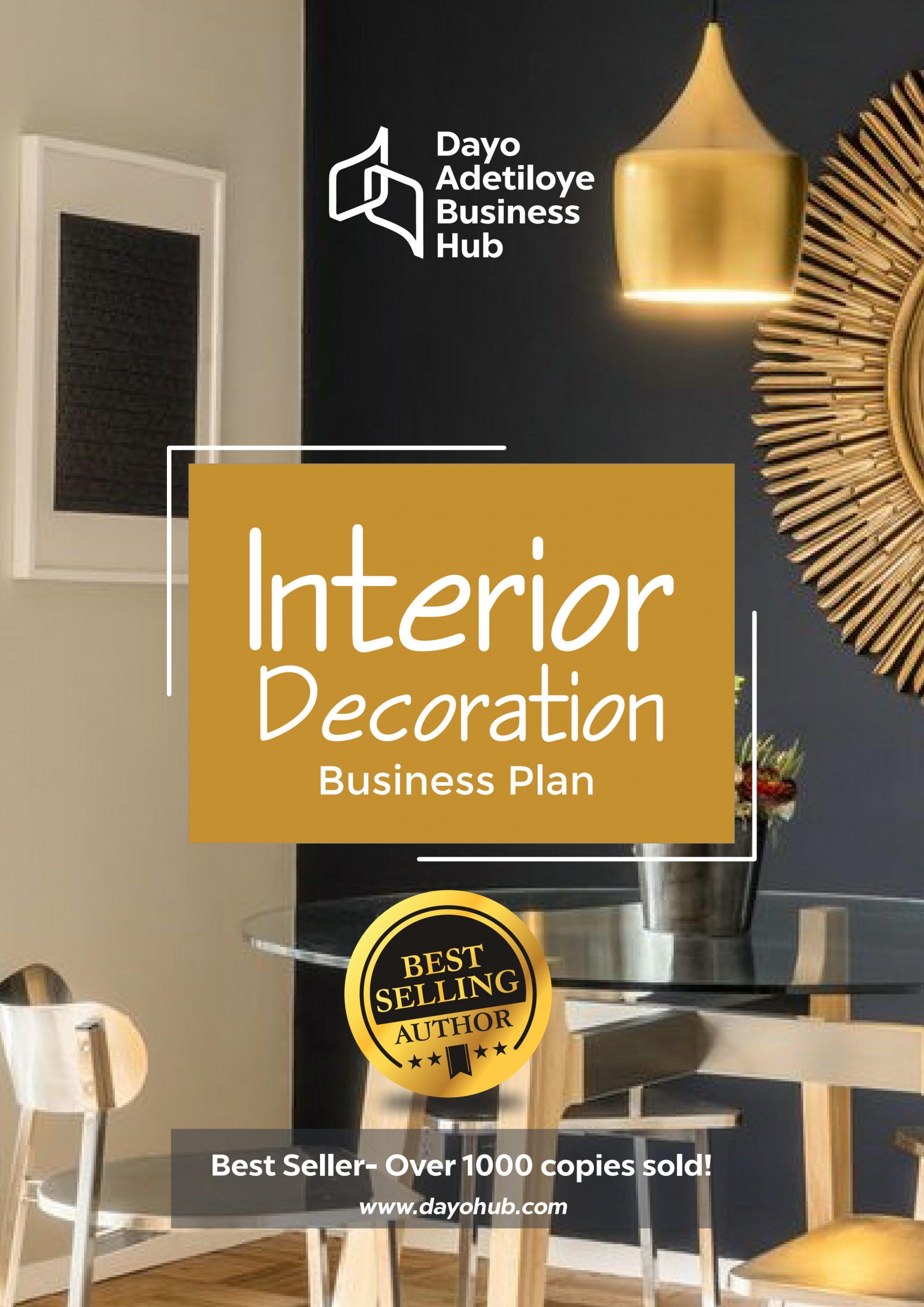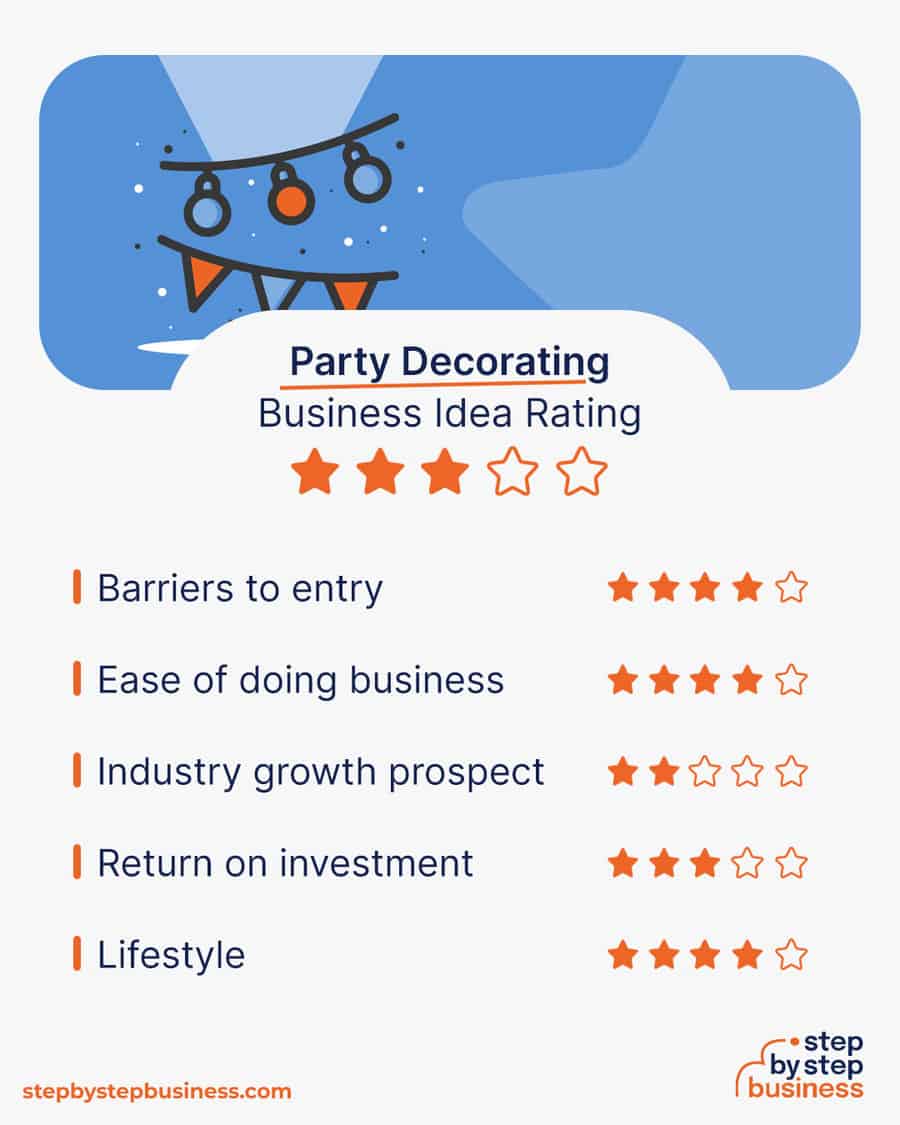Launching a Decoration Business: A Comprehensive Guide to Success
Related Articles: Launching a Decoration Business: A Comprehensive Guide to Success
Introduction
In this auspicious occasion, we are delighted to delve into the intriguing topic related to Launching a Decoration Business: A Comprehensive Guide to Success. Let’s weave interesting information and offer fresh perspectives to the readers.
Table of Content
Launching a Decoration Business: A Comprehensive Guide to Success

The world of decoration offers a dynamic and rewarding entrepreneurial opportunity. Whether it’s crafting stunning interiors, enhancing event spaces, or adding a touch of beauty to everyday objects, a decoration business can flourish by fulfilling the universal desire for aesthetic appeal and personalized environments. This guide will provide a comprehensive roadmap for launching a successful decoration business, covering everything from defining your niche to building a strong brand presence.
1. Define Your Niche and Target Audience:
The initial step involves identifying a specific area of expertise within the vast realm of decoration. This specialization allows for focused marketing, targeted skill development, and a clear brand identity. Some potential niches include:
- Residential Interior Design: Focusing on home décor, from furniture selection and color schemes to lighting and accessories.
- Event Decoration: Specializing in creating visually captivating environments for weddings, corporate events, parties, and other gatherings.
- Commercial Interior Design: Designing office spaces, retail stores, restaurants, and other commercial environments.
- Window Display Design: Creating eye-catching and thematic displays for shop windows, attracting passersby and driving foot traffic.
- Floral Design: Specializing in floral arrangements for weddings, events, and everyday occasions.
- Custom Furniture and Decor: Crafting unique pieces, such as furniture, artwork, and decorative items, to cater to individual client preferences.
Once a niche is established, identifying the target audience becomes crucial. This involves understanding their needs, preferences, and budget, allowing for tailored services and effective marketing strategies.
2. Develop a Business Plan:
A well-structured business plan serves as a roadmap for the decoration business, outlining its objectives, strategies, and financial projections. This document is essential for securing funding, attracting investors, and guiding decision-making. Key components of a comprehensive business plan include:
- Executive Summary: A concise overview of the business, its mission, and key goals.
- Company Description: A detailed explanation of the business’s structure, products or services, and target market.
- Market Analysis: A thorough examination of the industry, competition, and target audience.
- Marketing Plan: Strategies for reaching the target audience, promoting services, and building brand awareness.
- Financial Projections: Detailed financial forecasts, including revenue, expenses, and profitability.
- Management Team: Information about the individuals responsible for running the business.
3. Acquire Necessary Skills and Certifications:
The decoration industry demands a diverse range of skills, depending on the chosen niche. These can include:
- Design Principles: Understanding color theory, composition, balance, and other design elements.
- Space Planning: Efficiently utilizing space, considering functionality and aesthetics.
- Project Management: Managing time, budget, and resources effectively.
- Communication Skills: Effectively communicating design ideas and client expectations.
- Technical Skills: Proficiency in relevant software, tools, and techniques.
Depending on the specific specialization, formal training, certifications, or licenses may be required. For example, interior designers often need to be licensed in their respective states, while event decorators may benefit from certification programs.
4. Secure Funding and Resources:
Starting a decoration business requires financial investment to cover initial expenses, such as equipment, supplies, marketing, and operating costs. Funding options include:
- Personal Savings: Utilizing personal funds is a common starting point for many entrepreneurs.
- Small Business Loans: Obtaining loans from banks or credit unions can provide a larger capital injection.
- Grants: Exploring government grants and private foundation grants tailored for small businesses.
- Crowdfunding: Utilizing online platforms to raise funds from a large number of individuals.
- Partnerships: Collaborating with other businesses or individuals to share resources and expertise.
5. Choose a Business Structure:
The legal structure of the decoration business plays a significant role in liability, taxation, and administrative requirements. Common options include:
- Sole Proprietorship: The simplest structure, where the business is owned and operated by one individual.
- Partnership: Two or more individuals share ownership and responsibilities.
- Limited Liability Company (LLC): A hybrid structure that combines the benefits of sole proprietorship and corporation.
- Corporation: A separate legal entity with its own liability and taxation.
Choosing the appropriate structure depends on factors such as liability concerns, tax implications, and long-term growth plans.
6. Establish a Strong Brand Identity:
A compelling brand identity is essential for differentiating the decoration business in a competitive market. This includes:
- Business Name: Choosing a memorable and relevant name that reflects the business’s niche and values.
- Logo Design: Creating a visually appealing logo that represents the brand and its personality.
- Brand Colors and Typography: Selecting consistent color schemes and fonts that reinforce the brand’s aesthetic.
- Brand Messaging: Developing clear and concise messaging that communicates the business’s value proposition.
7. Set Up a Workspace:
Depending on the nature of the decoration business, a dedicated workspace may be required. This could be a home office, a studio, or a retail location.
- Home Office: A cost-effective option for small-scale businesses, offering flexibility and convenience.
- Studio: A dedicated space for designing, creating, and showcasing decoration projects.
- Retail Location: A storefront that allows for direct customer interaction, product display, and sales.
The choice of workspace should align with the business’s needs, budget, and target market.
8. Source Supplies and Equipment:
Depending on the specialization, the decoration business will require various supplies and equipment. These may include:
- Furniture and Decor: Sourcing furniture, lighting, textiles, and other decorative items from wholesalers, retailers, or manufacturers.
- Tools and Equipment: Acquiring tools for measuring, cutting, sewing, painting, and other tasks.
- Software and Technology: Utilizing design software, project management tools, and communication platforms.
9. Develop a Marketing Strategy:
Marketing is crucial for attracting clients and building a strong customer base. Strategies include:
- Website: Creating a professional website showcasing the business’s portfolio, services, and contact information.
- Social Media: Utilizing platforms like Instagram, Pinterest, and Facebook to showcase projects, share ideas, and connect with potential clients.
- Networking: Building relationships with other businesses, designers, and event planners.
- Local Advertising: Placing ads in local publications, community boards, and online directories.
- Referral Programs: Encouraging existing clients to refer new customers.
10. Build a Portfolio and Showcase Your Work:
A strong portfolio is essential for attracting clients and demonstrating the business’s capabilities. This includes:
- High-Quality Photography: Capturing stunning images of completed projects, highlighting the design details and overall aesthetic.
- Client Testimonials: Featuring positive feedback from satisfied clients to build trust and credibility.
- Online Presence: Displaying the portfolio on the website, social media platforms, and other online platforms.
11. Offer Excellent Customer Service:
Providing exceptional customer service is crucial for building a loyal client base and positive word-of-mouth referrals. This involves:
- Active Communication: Regularly communicating with clients, addressing concerns, and providing updates.
- Personalized Approach: Tailoring services to meet individual client needs and preferences.
- Professionalism: Maintaining a high level of professionalism in all interactions.
- Follow-Up: Checking in with clients after projects are completed to ensure satisfaction.
12. Continuously Learn and Adapt:
The decoration industry is constantly evolving, with new trends, technologies, and materials emerging regularly. It’s essential to:
- Stay Updated: Following industry publications, attending workshops, and networking with other professionals.
- Experiment with New Ideas: Trying out new design concepts, materials, and techniques to stay ahead of the curve.
- Seek Feedback: Regularly seeking feedback from clients and industry peers to identify areas for improvement.
FAQs on Starting a Decoration Business:
Q: What is the average cost of starting a decoration business?
A: The cost can vary significantly depending on factors such as the chosen niche, business structure, workspace, equipment, and marketing expenses. However, a reasonable estimate for a basic setup could range from a few thousand dollars to tens of thousands of dollars.
Q: How can I find clients for my decoration business?
A: Networking, building an online presence, local advertising, and referral programs are effective strategies for attracting clients.
Q: What are some essential tools and equipment for a decoration business?
A: The specific tools and equipment will depend on the niche. However, common items include measuring tools, cutting tools, painting supplies, design software, and photography equipment.
Q: How can I stay competitive in the decoration industry?
A: Building a strong brand identity, offering unique services, providing exceptional customer service, and continuously learning and adapting are key to staying competitive.
Q: What are some common challenges faced by decoration businesses?
A: Challenges include competition, managing client expectations, maintaining profitability, and staying up-to-date with industry trends.
Tips for Starting a Decoration Business:
- Start small and focus on building a strong foundation.
- Network with other professionals in the industry.
- Offer a variety of services to cater to different client needs.
- Develop a strong online presence and utilize social media effectively.
- Invest in high-quality photography and videography to showcase your work.
- Provide exceptional customer service and build strong relationships with clients.
- Stay up-to-date with industry trends and continuously improve your skills.
Conclusion:
Launching a decoration business requires dedication, creativity, and a well-defined strategy. By carefully defining your niche, developing a comprehensive business plan, acquiring necessary skills, and building a strong brand presence, you can establish a successful and fulfilling business that brings beauty and personalization to the world. Remember to continuously learn, adapt, and provide exceptional customer service to ensure long-term success in this dynamic and rewarding industry.







Closure
Thus, we hope this article has provided valuable insights into Launching a Decoration Business: A Comprehensive Guide to Success. We hope you find this article informative and beneficial. See you in our next article!
